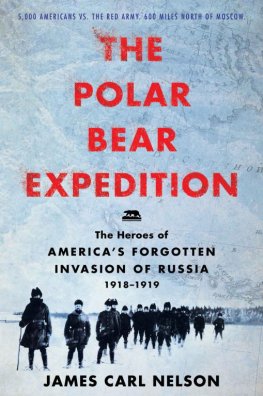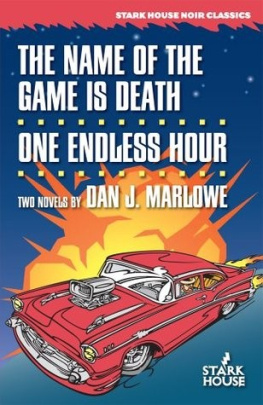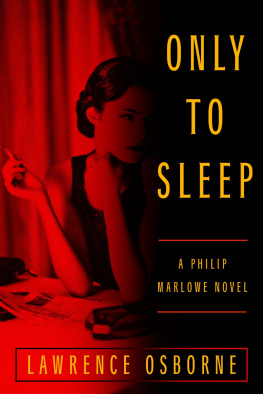James L. Nelson
The Blackbirder
To those millions of people stolen from Africa and upon whose long-forgotten backs this country was raised to greatness
Pirate-a sea-robber, or an armed ship that roams the seas without any legal commission, and seizes or plunders every vessel she meets indiscriminately, whether friends or enemies.
Privateer-a vessel of war, armed and equipped by particular merchants, and furnished with a military commission by the admiralty, or the officers who superintend the marine department of a country, to cruise against the enemy and take, sink, or burn their shipping, or otherwise annoy them as opportunity offers. These vessels are generally governed on the same plan with his majestys ships, though they are guilty of many scandalous depredations, which are very rarely practiced by the latter.
William Falconer
An Universal Dictionary of the Marine
The church was all heat and white sunlight, dust and the smell of dry grass and manure pushing in through flung open doors. Flies swirling, lighting, black specks on white painted pews.
Sunday. June 14, the Year of Our Lord 1702.
In the pulpit the preacher droned, on and on.
Marlowe shifted, felt the sweat running under his heavy coat and waistcoat and shirt. Realized he had had no thought for how long? No thought, just consciousness. Like an animal.
The preacher waved his arms, entreated God.
The air was close, oppressively hot. The church was nearly twenty years old, built when the now-burgeoning Williamsburg was still a backwater called the Middle Plantation. People crammed in like hands of tobacco prized into a cask. A blessing in winter, a misery in summer.
Marlowe looked at his shoes, then over at Elizabeth s legs, the outline of her thighs just discernible through layer upon layer upon layer of silk and taffeta. She had to be even hotter than he was. But she would remain proper, because she needed to feel proper after her many years of secret impropriety.
Propriety was why he was there in the first place, in his own pew.
Not in front of the communion table; those pews had been sold long before to the first families of Virginia. Their pew was behind the vestry, which was still perfectly respectable. The important thing was that everyone, todays newcomers and yesterdays, knew they could afford a pew in front of the communion table, were one available.
Marlowe had purchased the pew-at no little cost-because Elizabeth did not wish to jeopardize their place in Virginia society. She did not wish to risk losing this new life they had carved for themselves in this new land. They had position now in tidewater society, and people with position spent Sundays in their own pews.
As a merchant seaman, Marlowe had had Sundays off. Hed had no duty, save standing watch, unless the ship was run by some petty tyrant who could countenance no idleness among those to whom he paid wages.
What had it meant when he was on the account, among the Brethren of the Coast?
Nothing. As often as not they hadnt any notion of what day of the week it was. It did not matter to the lawless and the godless, whose hours called them only to slothfulness and debauchery.
Marlowe realized his legs were cramped. He stretched them out full length, flexed the muscles, savored the relief. Stole a glance at his friend Francis Bickerstaff, seated on his other side. He was dressed in conservative, unadorned clothes. He held a Bible in his lap, sat rigid, his eyes intent on the preacher. He looked as if he might have been a preacher himself.
Bickerstaff was a pious man, after his own fashion. A former tutor, fluent in Latin and Greek and all those things that the overeducated and underemployed seemed to know. He appeared to be absorbing every syllable of the preachers harangue.
But the preacher was, to Marlowes certain knowledge, a fool. He doubted there was anything the man could say that Bickerstaff would find enlightening. He concluded that Bickerstaff was as far removed from the sermon as he himself was, but that Bickerstaff, as usual, was better at hiding it.
Three years. Three years they had been coming to that cursed church.
He lowered his head, hoping it made him look pious. It had not been so bad before, with the old Reverend Hathaway, who was a good man, godly and thoughtful, and could spin a sermon that was not so oppressively dull. But he had taken fever and died a year back, and the Right Reverend Ezekiel Trumbell had taken his place. What the congregation had done to deserve him, Marlowe could not figure.
His thoughts wandered away from those considerations as his eyes wandered to the hem of Elizabeth s dress, then slowly up her leg. He pictured her thighs under all that cloth, the smooth white skin, the flat, lovely stomach, the curve of her hips, the way she looked lying naked in their big bed.
He felt himself becoming aroused, had a vague sensation that that was not appropriate in church. And then the warm sensuous drowsiness lapped over him and he felt his eyes close, felt delicious sleep pulling him down
Felt a sharp elbow in his ribs that jerked him back to church.
Stop that, Thomas, Elizabeth hissed, never taking her eyes from the preacher, her expression of pious attention never wavering.
What? Marlowe felt himself flush. He wondered, did she mean his falling asleep, or had she guessed at his salacious thoughts?
I do believe Reverend Trumbell is speaking to you, dear.
Marlowe straightened and focused on the Reverends words. Trumbells head was turned in their direction, and his eyes flickered toward the Marlowe pew, like fingertips testing a hot griddle, then pulling away fast before they are scorched
Oh, God. Will you not even look me in the eye, you little worm?
It was the speech about the danger of free Negroes again. Dressed up with some nonsense about Cain and Abel, but at its heart it was the same old speech. Marlowe wanted to curse out loud.
And the precursor to Cains sin of the blood? Was Adams failure to obey Gods command to keep dominion over all the beasts of the field, yea, all the living creatures.
And so today, like Adam, are we not commanded to have dominion over all the beasts of the field, and all the heathen creatures, be they man or beast, who have not the benefit of knowing God? It is our duty as Christians to prevent the wicked idleness into which man must fall if the Godly do not keep dominion over them. We fail in our duty if we do not hold the reins tight. And most especially must we keep dominion over those poor children of Africa, whose childlike innocence
Oh, God, I pray, preserve me from such blather, Marlowe said, a bit too loud. A few heads turned, Elizabeth s sharp elbow struck home.
It was his slaves, of course. His former slaves, actually, the ones that had come with the plantation he had purchased from the estate of Elizabeth s late husband. He had freed them all and then employed them as wage labor.
It was not a popular decision in the tidewater.
Marlowe saw Trumbells attention shift from his pew to those in front of the communion table and he followed the Reverends gaze. In the second pew back sat Frederick Dunmore, arms folded, listening with great care to the words. He had the entire pew to himself. He had no family that anyone knew of.
Of course, Marlowe thought. Check with Dunmore, the Lord and Master, make sure youre delivering the speech the way he told you. How had Bickerstaff put it, from one of his plays? Speak the speech, I pray, as I pronounced it to you That was Dunmore.
He was dressed in white, as he always was: white silk coat and waistcoat, brilliant white breeches and socks, a great white river of ringlets from his periwig cascading down the front of him. He blended into the pew like a deer blends into an autumn field. He looked as if he were trying to dress like God himself.







